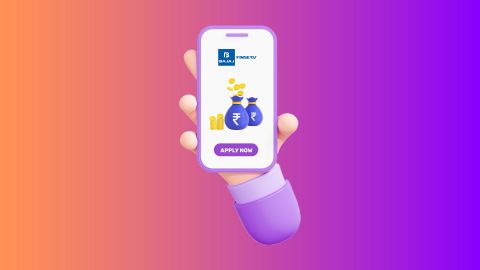To access any financial service, customers must complete the KYC process, where the KYC full form is Know Your Customer. KYC involves verifying identity details to prevent fraud, money laundering, and other financial crimes. As per the Reserve Bank of India guidelines, banks and financial institutions must collect and authenticate customer documents through KYC online registration or offline methods to ensure regulatory compliance, enhance security, and maintain transparency across financial transactions.
Let us understand KYC meaning and its verification process.
What is KYC?
KYC, or Know Your Customer, is a verification process used by financial institutions and businesses to confirm customer identity. The KYC full form highlights its purpose—ensuring authenticity by collecting identification details.
The KYC verification process typically requires documents like an Aadhaar card, PAN card, passport, or driver’s licence. This helps banks and companies validate a customer’s identity, address, and other essential details. KYC is mandatory for opening bank accounts, applying for loans, and accessing various financial services.
By ensuring transparency and reducing fraud, KYC helps businesses comply with legal and regulatory standards, making financial transactions more secure and reliable.
What is the importance of KYC?
1. Prevents fraud
KYC helps businesses verify customer identities, reducing the risk of fraudulent activities like identity theft and scams.
2. Ensures regulatory compliance
KYC verification ensures that businesses comply with legal and regulatory requirements, preventing financial penalties.
3. Builds trust
By confirming identities, KYC creates a safer relationship between institutions and their customers, improving reliability and security.
4. Monitors transactions
KYC helps track suspicious activities, preventing financial crimes like money laundering, terror financing, and illegal transfers.
5. Ensures accountability
By maintaining accurate customer records, KYC holds individuals and businesses accountable for their financial activities, promoting transparency.
6. Mitigates risks
KYC helps financial institutions assess potential risks associated with customers, enabling better decision-making and reducing exposure to fraudulent transactions.
Types of KYC
There are several types of KYC processes, each catering to different customer verification needs:
1. Aadhaar-based eKYC
Aadhaar-based eKYC is a digital verification process that utilizes an individual's Aadhaar number to authenticate their identity. This method allows for quick, paperless verification, significantly reducing the time and effort involved in traditional KYC procedures. It enhances convenience and accessibility while ensuring compliance with regulatory standards.
2. Paper-based KYC
Paper-based KYC involves collecting physical documents from customers to verify their identity and address. This traditional method requires individuals to submit photocopies of documents like ID proofs and address proof in person. While it may be more time-consuming and cumbersome, it remains essential for customers without access to digital alternatives.
3. Digital KYC
Digital KYC is an online verification process that allows customers to authenticate their identity using electronic documents and biometric data. This method streamlines the KYC process, making it faster and more efficient. It enhances customer convenience while ensuring compliance with regulatory requirements, facilitating quick access to financial services.
4. Video KYC
Video KYC is an innovative verification method where customers undergo identity authentication via a live video call with a representative. This approach combines visual confirmation and document verification, offering a secure and convenient alternative to traditional methods. It enhances customer experience while ensuring compliance with regulatory standards.
What is the step-by-step process for offline KYC verification?
Here are the steps for an offline KYC verification process.
- Download the KYC form.
- Fill in the form with your details, specifically your Aadhaar, or PAN.
- Visit the nearest KYC registration agency (KRA).
- Submit the form with the attached ID and address proof.
- Complete biometrics if required.
- Collect the application number and track your application status online.
While this process is quite simple, it does require up to 7 days to get verified. Alternatively, the Aadhaar-based biometric authentication KYC process can be quicker as it has a few in-person interactions combined with online provisions.
Additional Read: How to link your Aadhaar card with your PAN & mobile number?
What is the step-by-step process for KYC online verification?
There are two ways to complete your online KYC verification: Aadhaar-based biometric KYC or Aadhaar OTP. The latter is the quickest, allowing you to complete the KYC process in just a few minutes. Here are the steps to follow:
- Visit the official KYC online portal of the KRA (KYC registration agency).
- Log in with your registered mobile number and enter the OTP received.
- Make a self-attested copy of your e-Aadhaar and upload it.
- Accept the terms and conditions.
Alternatively, with Aadhaar-based biometric KYC, follow these steps:
- Visit the official KRA website.
- Choose the biometric authentication option.
- Wait for an authorized representative to visit your address.
- Show original documents as requested and await KYC approval.
You can perform a KYC status check online to verify your progress. KYC verification online can be completed in less than 24 hours. Since KYC is required for banks and NBFCs, it is advisable to verify your KYC as soon as possible.
Types of KYC documents
KYC documents are essential for completing the KYC verification process required by banks and financial institutions. Common KYC documents include government-issued photo identity proofs such as passports, driving licences, voter IDs, PAN cards, and Aadhaar cards. For address verification, institutions usually ask for utility bills, bank statements, rent agreements, or property documents. In some cases, income-related KYC documents like salary slips, Form 16, or income tax returns may also be required to assess financial eligibility. Submitting accurate and updated KYC documents ensures smooth KYC verification, helps avoid delays, and keeps your financial records compliant with regulatory requirements.
List of KYC documents
A few documents classified as officially valid documents (OVDs) by the Government of India are mandatory for a KYC. These documents are divided under 2 categories:
1. Proof of identity
- PAN card
- Aadhaar card, passport, driver’s licence.
- ID card with photo issued by any central/ state department, statutory/ regulatory authorities.
- ID card issued by banks and public financial institutions.
- ID card issued by colleges affiliated with universities.
2. Proof of address
- Passport, voter’s ID, lease agreement, ration card, flat maintenance bill.
- Utility bills such as gas or electricity bills that are less than 3 months old.
- Bank statements.
- ID card with address on it.
- Proof of residence issued by a notary public, gazetted officer, parliament, bank managers, multinational foreign banks, scheduled cooperative banks.
What is eKYC?
eKYC, or electronic Know Your Customer, is a digital verification process that allows financial institutions to authenticate a customer's identity online. It utilises electronic documents, biometric data, and secure databases, enabling quick, paperless verification. This enhances convenience and efficiency while ensuring compliance with regulatory requirements.
Conclusion
Financial institutions perform KYC checks periodically to update customer information, which is crucial for maintaining security and compliance. The frequency of these updates varies based on the risk profile of the customer. High-risk customers may need to update their KYC information every two years, while medium-risk customers do so every eight years, and low-risk customers every ten years. Keeping your KYC updated is essential, especially if you plan to apply for personal loan, as it ensures a smoother application process and quick access to financial services.
Get insights on what is eKYC and it’s eligibility criteria.






